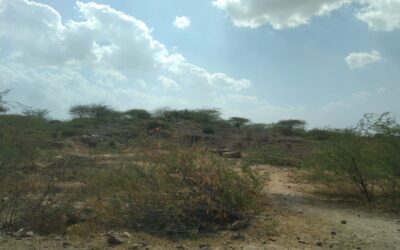What are Porta Cabins?
An innovative educational initiative began in Chhattisgarh, to build schools with temporary material like bamboo and plywood. These were residential schools that were started to ensure continued primary and middle level education in left wing extremism affected villages of Dantewada district. Away from fear and instability, the idea was to provide a safe environment to children and their families, where they are able to get proper education.
Since 2011, this initiative has helped reduce the number of out-of-school children and has improved enrollment along with student retention. Other than that, it also aims at getting the children ready for employment opportunities as well as for everyday life. Basic amenities like healthcare, food and proper accommodation are provided. They are encouraged towards innovation and entrepreneurship. Vocational skills are promoted and emphasis is given on building capacities for self-employment.
Why were Porta Cabins built?
The schools were rebuilt to solve the problem of concrete structures that take a long time to construct and are easily destroyed by the Left Wing Extremist violence. Therefore, ‘Portable Cabins’ were made of material that’s long lasting, durable, fireproof, waterproof and can be easily rebuilt. Bamboo is procured from Nagaland. Cement plates are laid for the foundation. Later, it was decided that these cabins would be built in educational clusters and not in interiors so that there is no objection to cement foundation. This also ensured that teachers need not go to remote areas, which will improve their attendance, making monitoring and evaluation easier.
Direct Beneficiaries
- Students up to class 8th, usually in the age group of 6-14 years.
- Anudeshaks (volunteers) from the local Gondi and Halbi speaking population.
- Adhikshak (teacher-in charge) and other staff, responsible as class instructors and as wardens for resident students.
How does a typical day look like?
The daily routine of kids is different from other schools. Roughly, this is how it goes:
4 am : Wake up, clean the rooms and study
8 am : Get ready
8:30 am : Breakfast from lunch boxes
9:45 am : A small meal before school starts
10 am to 4:30 pm : Classes as per the schedule
4:30 pm : Back to rooms and relax
7 pm : Dinner
9 pm : Bedtime
Total strength of each cabin is around 450-500 students. In my Porta cabin, I have tried to introduce English commands during prayer and have included a slot for library in their time-table. Everyday, from 3 to 4pm, kids indulge in activities like debates, quiz, talent show and other ways of hands-on learning. My science team recently conducted their first science workshop where kids were given Marshmallow challenge with modified rules. They actively participated and gave their best shot.

Opportunities And Challenges
Much like any panchayat in a village, Bal Panchayat (of kids) has been initiated in my school. A president and cabinet ministers were selected followed by which, students divided their work responsibilities and started handling things on their own. A total of 15 student ministers are working as a team to get the school into a better shape. Smaller children tend to run away from porta cabins, mainly because they aren’t used to staying in closed environments and face difficulty to adjust. Language also plays a major role for kids to cope up and mingle with each other.
Porta cabins seek to bring about a generational change by addressing the lack of education in schools that have been destroyed by violence. Attempts are being made to merge Porta cabins with mainstream primary school system so that it can be brought under the ‘Right of Children to Free and Compulsory Education (RTE) Act, 2009’. They have indeed given hope for a positive change by bringing dropout children back to the schools and fulfilling the goal of ‘Education For All’.




Good informative piece.